Google Adsense Below
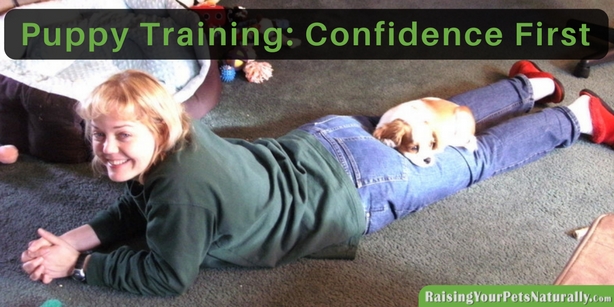
From Potty Training to Leash Training. What is the First thing to Train Your New Puppy?
Puppy training, or should I say, training humans to train their puppies, is probably one of the most rewarding things I get to do in my dog training career. At the same time, it can be very challenging for me and the new puppy parents.
Puppies are great! They have wonderful puppy breath and a zest for life, and they are easily amused. If you look at that from the other side of the coin, they can be in your face, running all over, and getting into mischief!
Watch the puppy video and don’t forget to subscribe to my YouTube channel.
No doubt they are a ton of work! But, if you put a few good dog management tools in place (see my blog post here on that); start out with good puppy socialization exercises (see our blog post here on that); have a lot of good, safe and durable dog toys, chews and bones (see Dexter’s blog post here on that); see a good dog training coach right away (check me out here); and expect some mistakes, you will be on your way to raising a great dog!
I want to say that again…..raising a great dog. If you took that puppy plunge, you are a dog parent, and will need to teach your puppy how to live and thrive in our human world. You know that old saying, “patience is a virtue”? Try patience x10 when raising a puppy! You need to have a good sense of humor some days and just laugh at some of the puppy antics they can come up with. If you have that attitude, raising a puppy is truly a blessing. But it’s not for everyone.
One of the key components in raising a healthy, happy, and safe puppy to become a great family member as an adult dog is to teach them not to worry. I know it may seem odd, we think about things like walking politely on a leash, not jumping, potty training, etc., which, of course, are all important and also taught in this process of “no worries.”
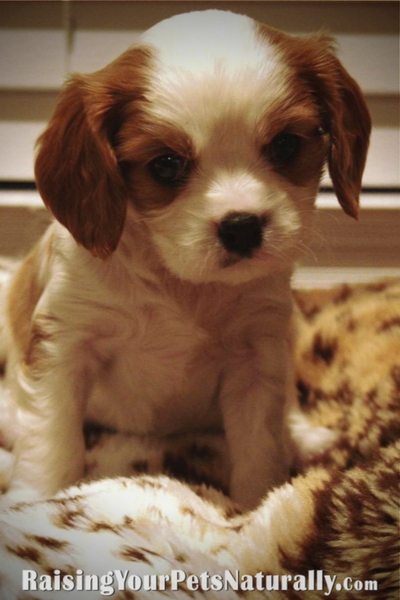
In more of my personal dog training cases than not, the dog’s undesirable behavior, whether lunging at the leash, biting, growling, separation anxiety, etc., started because of underlying fear or anxiety that the dog had. Therefore, in my professional career as a dog counselor, I have been working with these cases and trying to help dog parents cope and change their dog’s behavior to something more manageable. But then there is the other side of that coin – we can work on preventing these behaviors in most puppy cases!
No worries. A pretty simple concept when you think about it and truly not that hard to implement if you think ahead and think about what your dog is feeling. Oh, yes, they are very emotional creatures and very complex. A side note for another blog entry.
Watch my 54-second short. Don’t forget to subscribe while you’re there.
Here are a few ideas to get you started. Prevention, prevention, prevention. Don’t wait for a potential problem to happen, have Pavlov on your side. When reading the list, remember the No Worries mantra!
- Dog Training Methods: We certainly do not want our dogs to be intimidated, or scared of us in any way! We are supposed to be their teacher, parent and someone they can trust and turn to in times of uncertainty. Positive dog training methods only!
- Thunderstorms: Again, let’s not wait for your dog to develop a fear of storms or fireworks; let’s work on a prevention plan. Bang=Chicken Treat/Steak/Salmon etc.
- Dogs Barking: Barking Dogs=Chicken Treat/Steak/Salmon etc.
- Garbage Truck, Fire Truck, Sirens=Chicken Treat/Steak/Salmon, etc.
- Kids=Chicken Treat/Steak/Salmon etc.
Are you seeing a trend here? I am not going to wait to see if my puppy is going to have an issue with anything, I’m going to actively work on a prevention plan. I am teaching the puppy that good things happen when potentially scary or unusual things are around. This, in turn, helps to teach your puppy not to worry about life, all is good, and in the end, you get a dog who will look up at you when those things are presented to them in life.
Yes, I do tend to have dog training rewards on me at all times, particularly if I’m working with a new puppy, or actively working on changing a behavior. After a while, I will start to vary the times when they get rewarded for these behaviors, but never fully extinguish an opportunity for a reward. That time can only be determined by your puppy, his experiences, and your follow-through. I want to see a puppy reliably not reacting in a situation, being calm, and/or looking at me before I even think about fading the reward system.
What challenges have you faced while teaching your puppy? Share your experiences and tips in the comments below!
Are you looking for even more ways to stay up to date with Raising Your Pets Naturally? Sign up for the newsletter for more tips and promotions. Don’t forget to be social and Like, Follow and Subscribe.
Facebook Twitter Pinterest Instagram YouTube
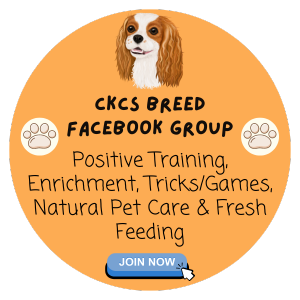 |
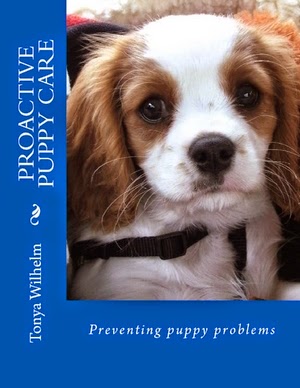 |
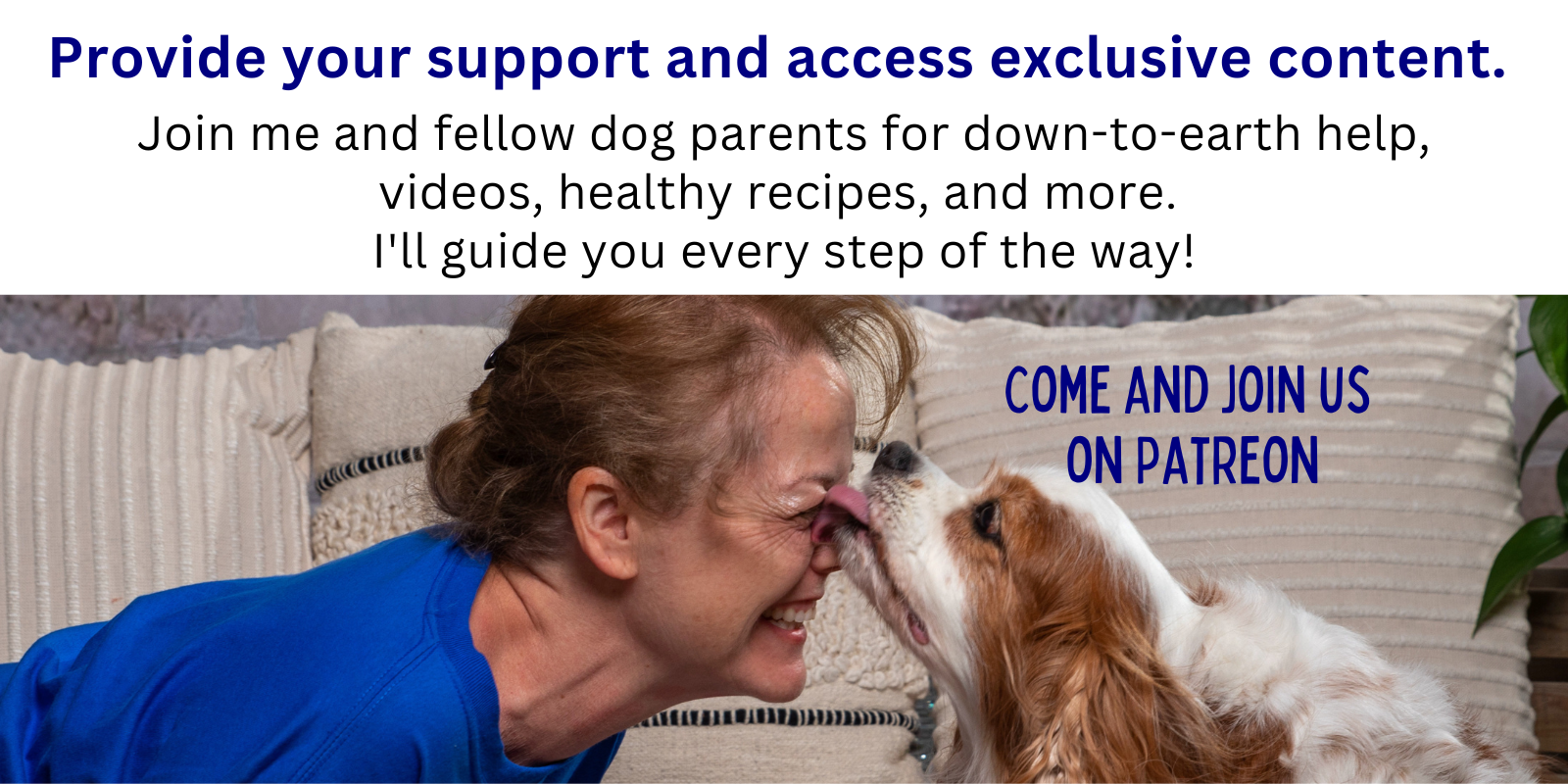
Google Adsense—>
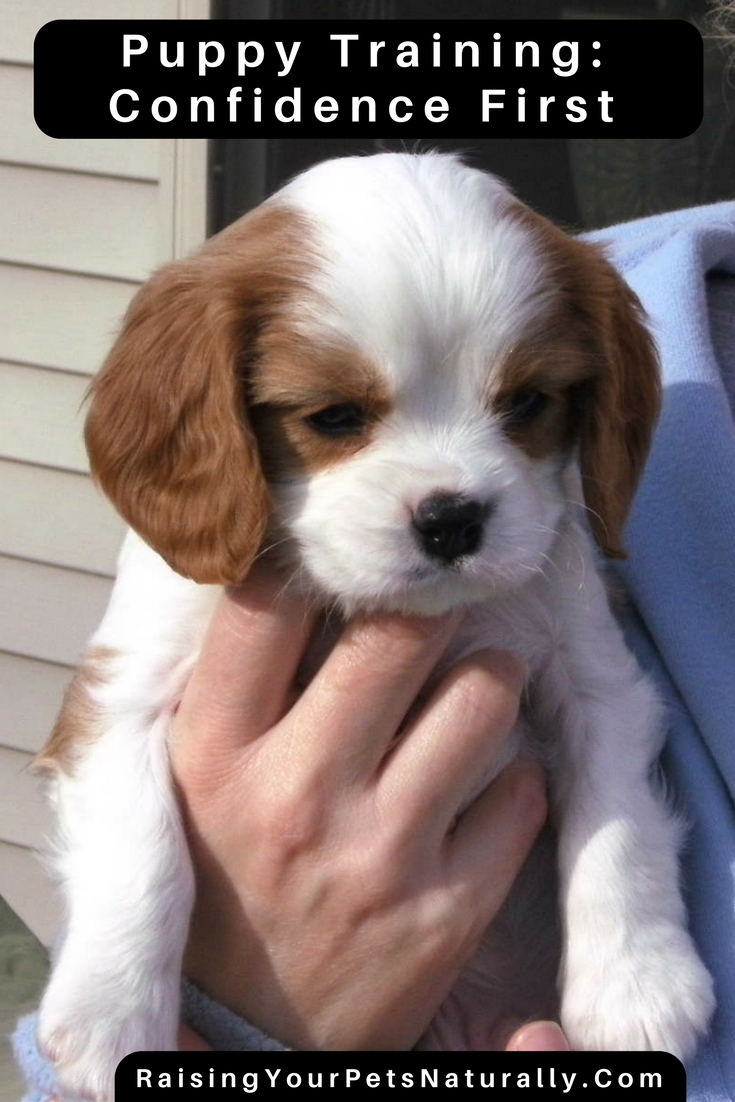



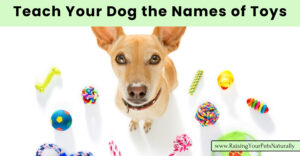
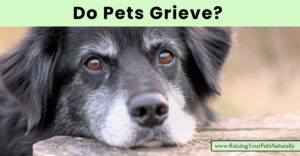
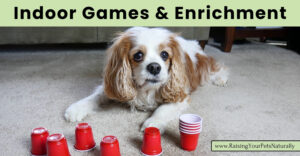
One thought on “Puppy Training Basics. The Best Way to Train a Puppy starts with Confidence Training”
Comments are closed.